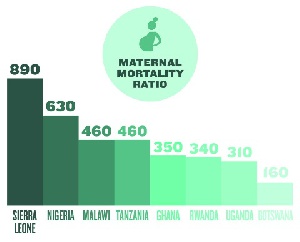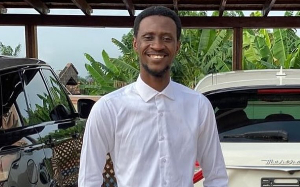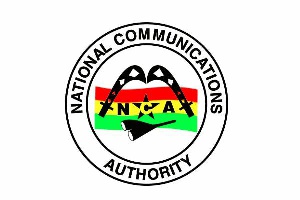MamaYe! Ghana has hosted communications and advocacy activists from Nigeria, Sierra Leone, Malawi and Tanzania as part of the international MamaYe Campaign, a multi-year programme, which aims to improve maternal and newborn survival in sub-Saharan Africa.
The activists from East and West Africa gathered in Accra to attend a workshop on Effective Communications and Advocacy in Maternal and Newborn Health, hosted at the M Plaza Hotel. The agenda was to examine the impact of the campaign, which is currently promoting maternal and newborn survival in the five African nations, including Ghana.
The three-day event gave participants the opportunity to share success stories of strategies and techniques that have brought maternal and newborn health issues to the attention of policy makers and the general public, which is crucial in Ghana meeting the 2015 deadline for Millennium Development Goals(MDG) 4 and 5. By the end of the workshop, participants had committed to ensuring many more mothers and babies survive pregnancy-related complications.
Dr. Ann Pettifor, Director of Advocacy International and main facilitator of the workshop said bringing all the teams together was valuable because it offered activists from all participating countries a common platform to share ideas and strengthen advocacy efforts across the board.
“Ultimately we want to save lives and we cannot save mothers and babies by just talking about it. We must use evidence to bring about a transformation in the life-chances of African women and their babies. We must use evidence to persuade the politician, journalist, opinion leader, health worker, of the urgency of our mission. They must be given a reason to act and they must be held accountable for every woman or child’s life lost unnecessarily,” she said.
Dr. Pettifor added that it was the duty of all those working in the maternal and newborn health sector, as well as the media, to consistently emphasise the need to improve the quality of care for mothers and their babies. She tasked the MamaYe communications and advocacy teams to celebrate people who are doing exceptional work, not only on the large scale, but those who work tirelessly in their own little corners to promote maternal and newborn survival across the continent and to encourage others to do the same.
Statistics from the World Health Organisation report, WHO 2012, Trends in maternal mortality:1990-2010, indicate that although Ghana’s maternal mortality has declined by 44 per cent since 1990, the current rate of 350 deaths per 100,000 live births is still very high. To make matters worse, 29 newborns per 1,000 live births die every year, an avoidable situation that decision-makers cannot brush under the carpet.
The crisis of low rates of maternal and newborn survival is no different in Malawi, Nigeria, Sierra Leone and Tanzania where the mortality rates are comparable, or worse than Ghana’s. In Nigeria the rate is 630, in Sierra Leone 890 and in Malawi and Tanzania 460 deaths per every 100,000 live births respectively.
The team members received extensive training in the use of evidence in advocacy campaign messaging, effective storytelling and digital media techniques. At the end of the training they were unanimous that they have been well equipped to continue their rigorous effort to save mothers and babies.
Find out more on the MamaYe website (www.mamaye.org.gh), a resource centre that provides information about the latest evidence on Ghana’s maternal and newborn health, as well as suggestions for actions that you can take to help save mothers and babies.
Notes to editor
For more information, contact
Derick Romeo Adogla | d.adogla@arhr.org.gh | 024-1193509
Social media contacts
• www.mamaye.org.gh
• www.twitter.com/mamayegh
• www.facebook.com/mamayegh
Regional News of Wednesday, 25 September 2013
Source: MamaYe

















